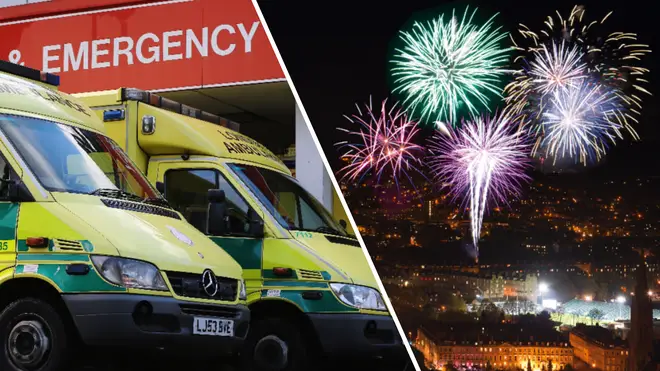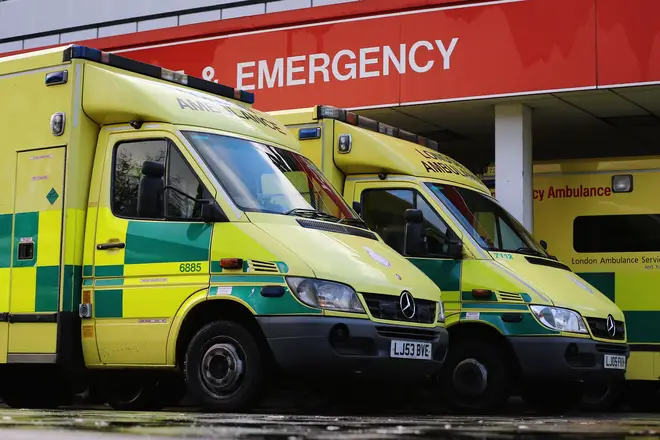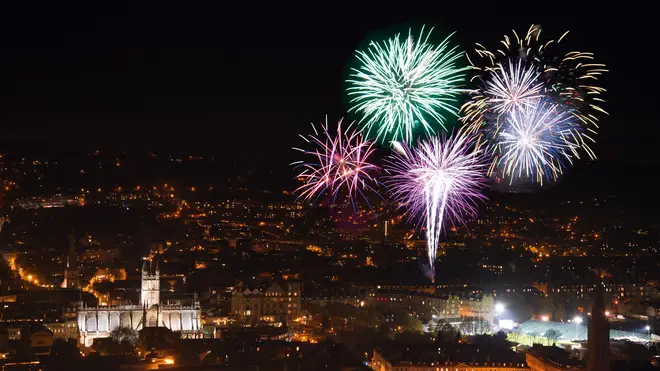On Air Now
Early Breakfast with Lindsey Russell 4am - 6:30am
2 November 2019, 18:52

As paramedics urge families to stay safe on bonfire night, the NHS reveals its top tips to avoid accidents.
Almost 2,000 people ended up in A&E last year due to firework injuries, new data has revealed.
Thousands of wounded patients were seen by medical professionals due to burns and scalds between 2018 and 2019 – and now doctors are urging families to make safety a priority.
The NHS and St John Ambulance services have teamed up to encourage families to take care during Guy Fawkes celebrations after figures have risen.
Last year, more than 35,000 people sought advice from the NHS website on how to treat fire-related wounds from burns to scalds, marking a significant jump in numbers from previous years.

Luckily, most issues were minor as parents and children were patched up in A&E departments across the country.
But over the last five years a whopping 1,000 patients have been admitted to hospital due to pain from explosive devices and fire.
Doctors have issued some handy advice ahead of bonfire night and are asking everyone to learn some basic first aid in case an incident occurs.
Dr Cliff Mann, NHS National Clinical Director for Urgent and Emergency Care, said: "We all want fireworks night to go with a bang of dazzling lights, but people need to take care that their festivities don’t end up with the flashing blue lights of an NHS ambulance.
"So we’re urging people to remember remember the 5th of November for the right reasons, and take simple steps to stay safe, as well as learn some basic first aid skills.
"And while the NHS is always there for those who need it, people with minor illnesses and injuries can help frontline staff focus on those who need help most by getting free expert advice from the NHS.uk website, or the NHS 111 phone and online service."
Read more: The best celebrity Halloween costumes of 2019

- Avoid wearing loose or potentially flammable clothing
- Always wear gloves when handling sparklers and fireworks
- Always have buckets of water ready to put out small fires or to cool sparklers
- Make sure children are supervised around fireworks and bonfires
- Never drink alcohol if you’re setting off fireworks
- Keep animals indoors and close curtains – frightened animals running around can cause accidents
- Only purchase fireworks that are sold by a registered seller
- Follow instructions carefully and light fireworks at arm’s length
- Ensure spectators stand back from bonfires and fireworks
- Never go back to a firework that has been lit – even if it hasn’t gone off
St John Ambulance's first aid team also revealed what you should do if you've been burned, scalded or have suffered smoke inhalation.
– Move the person away from the heat
– Place the burn or scald under cool running water for at least 10 minutes
– If the burn is to a young child, larger than your hand, on the face, hands or feet, or is a deep burn, call 999
– Remove jewellery and clothing around the area, unless stuck to the burn
– Cover the burn loosely, lengthways with kitchen film to prevent infection
– Don’t burst blisters or apply creams or lotions
– Monitor and treat for shock if necessary
– Tell them to seek medical advice.
- Move them away from the smoke so they can breathe in some fresh air
- Help them sit down in a comfortable position and loosen any tight clothing around their neck to help them breathe normally
- If they don’t recover quickly, call 999/112 for an ambulance.